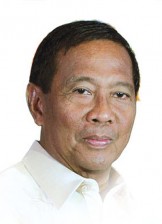When it comes to addressing informal settlers, the government is not proactive enough in preparing relocation sites, Vice President Jejomar Binay said Thursday.
“I was criticizing that this is a government of reaction rather than anticipation,” Binay said on Wednesday in a forum with the Chamber of Thrift Banks when asked what other initiatives the government was doing to address the issue.
Binay, who also chairs the Housing and Urban Development Coordinating Council, said the government must acquire lands for potential relocation sites and start building houses.
With a land bank, the government will not be pressed for time in preparing relocation sites once communities are about to be transferred to another area, he said.
But Binay said a housing program must be inclusive. He said a comprehensive shelter plan, which includes creating job opportunities on the relocation site, was in place for informal settlers in Metro Manila.
To support these projects, P50 billion has been set aside to help within five years 104,000 informal-settler families living in “danger zones,” he said, referring to areas prone to flooding.
Another measure is the expansion of the membership base of Pag-Ibig Fund or the Home Development Mutual Fund to include household helpers or “kasambahay,” public utility drivers and overseas Filipino workers.
Binay said he was sorry that the release of Pag-Ibig loans slowed down last year. He noted that a big portion of Pag-Ibig’s P50-billion budget for 2011 had not been disbursed.
“This is a result of that unfortunate incident with a certain corporation,” he said.
“If our intervention wasn’t timely, it would have resulted in a loss of about P5.5 billion. So we had to review the processes, especially the list of membership,” he said.
Binay was referring to the Globe Asiatique controversy in which the housing developer was investigated for allegedly selling homes to “ghost” borrowers. Globe Asiatique was able to siphon off billions of pesos from Pag-Ibig for its projects.
Indigenous people, meanwhile, were among the new beneficiaries of state-owned housing programs, according to the Vice President.
He said the indigenous people, many of them poor, were also in need of such safety nets.
As an example, Binay reported that the National Housing Authority had approved a housing program for an initial batch of Aeta families. It will be implemented within the year.
Binay urged thrift bankers to use housing microfinance to help more poor families buy their homes given the country’s housing backlog of 3.6 million units.
He also asked local government units to help solve the backlog through community mortgage programs.
